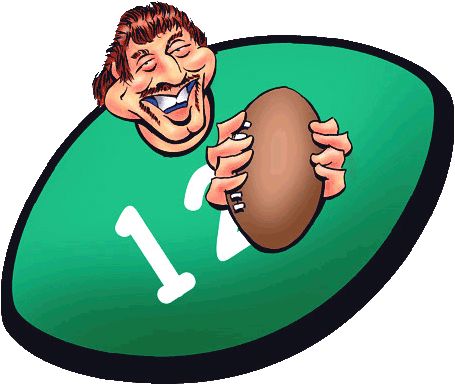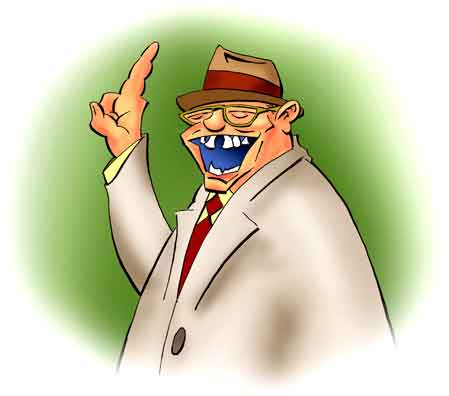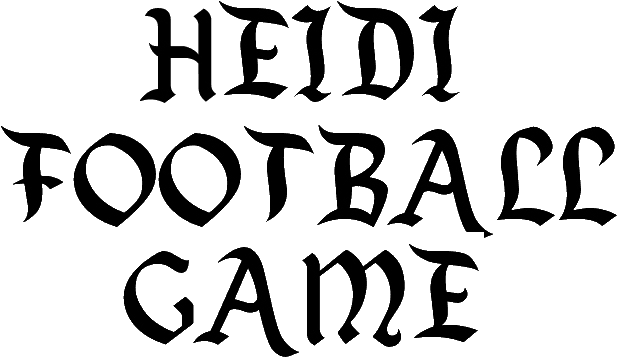(Broadway)
Joe Namath

Although not exactly a contemporary celebrity, everyone will certainly agree that "Broadway" Joe Namath is at this writing at least a CELEBRITY!
But sans doute what garnered Joe his greatest fame was that he brought the American Football League to parity with the National Football League. Joe's achievement was all the more ironic because in September 1968, there was an article in a popular MENS magazine titled "Could [Swinging] Joe Namath Make It In the Tough NFL?"
A rather laughable title in hindsight since four months later Joe quarterbacked the New York Jets to the most surprising upset in history. That was when on January 12, 1969 - a most notable date - the Jets beat the Baltimore Colts in Superbowl III.
Yes, we said Superbowl III. The Jets were the first non-Green Bay Packers team to win a Superbowl.
And that was more than half a century ago, mon amis.
So why did the magazine put such a condescending title to their article? Well, at that time there were two independent football leagues, the American Football League (or the AFL - not to be confused with the AF of L) and the National Football League, the NFL. The AFL was considered the 95 pound weakling of professional football conferences, and after their two previous drubbings in Superbowl I and Superbowl II, people wondered why anyone was bothering.
And so when Joe stood up in a press conference and "guaranteed" the Jets would win, everyone just snickered. Joe was known for his outspoken and even outrageous statements. Huh! That's just "Broadway" Joe blowing hot air.

Vince Lombardi
The Undefeatable
But Joe's Superbowl win gave the Good-Footballkeeping-Seal-of-Approval to not only the AFL itself but to the decision to meld the two football organizations into one and (apparently) unique league. But because in the first two Superbowls, the AFL teams had been so throughly stomped by the Packers under the apparently undefeatable Vince Lombardi, the proposed merger had started looking pretty shaky. But Joe's guarantees came through and so the NFL and AFL became one big happy and indivisible family. Since then all attempts to launch a new independent football league have fallen with a resounding splat although at this writing people are still trying.
The "swinging" label - a characterization used on the cover of the magazine but not in the article itself - reflected Joe's famous penchant for high living in New York's night scene. How, people wondered, could Joe quarterback a professional football team and still whoop it up like he did?
In a later interview, Joe said that the Jets' coach, Weeb Ewbank, believed the players should practice at the same time of day that the games were played. Since in those early days almost all games were scheduled for Sunday afternoons, Joe pointed out that he could stay out at the clubs and hot spots until 2 or 3 in the morning and still get back and get a good night's rest before practice.
Joe also broke the dress code barrier in professional sports. He was the first sports player to effect long "mod" hair and festoon a mustache. Then once he decided to shave his whiskers, he did so in a commercial for which he was paid big bucks. Joe also had a sense of humor, and he once made a commercial advertising (and wearing) panty hose.
But most of all, the world will remember Joe as one of the quarterbacks who played in the infamous

On November 17, 1968, the Jets were playing the Oakland Raiders. At that time the games were not the marathonic Sisyphean ordeals they've become today. So the networks figured that allocating three hours for the broadcast would be more than ample and the game would end well before the time of the next scheduled program. That was a made-for-TV movie of Heidi, a then-popular but now largely forgotten novel.
The Raiders were favored by 7½ points (half points in a point spread are to insure that there can be no tie between the bettors and the bookies). But with less than five minutes to play, the Jets were ahead 32 to 29.
Then Heidi struck! Because the game had run much longer than expected, the network cut the broadcast off and started Heidi. The pre-emption irritated a lot of viewers, but after all there was only a minute left in the game. So the Jets, the networks decided, had it sewn up.
Then lo! the Raiders took the next kickoff return which set up a pass play where the Oakland receiver took the ball to the end zone. But the referee called the play back on a penalty. The next play was again a pass that Oakland again took to a touchdown.
This time the play counted. It was now 36 to 32, Oakland.
What was surely to be the last drive, the Jets received the kick. But amazingly, they fumbled on their own 12 yard line. The Raiders' Preston Ridlehuber scooped the ball up and took it into the endzone. The final score was 43 to 32, Oakland - and the television viewers didn't know it.
But Jets fans did not despair! In December the Jets and Raiders appeared again in the AFL championship game. This time the Jets won. And as we know, Joe took the team to the Superbowl victory against Baltimore.
But the greatest reassurance to the viewers was when another made-for-TV movie Pinocchio* was scheduled for broacast on Sunday, December 8, only three weeks after the Heidi game. Naturally there were the usual afternoon games scheduled so NBC took out an ad which showed Pinocchio stating:
I'd rather cut off my nose than have them cut off any of today's AFL action.
Footnote
This was not an animated film like the original Walt Disney production, but instead featured live actors. Pinocchio, by the way, was played by Peter Noone, better known to teenagers of the 1960's as "Herman", the lead singer of the English rock and roll band, Herman's Hermits.
By all accounts the ratings were up.
References
"Could Joe Namath Make It in the Tough NFL?", Dave Anderson, True Magazine, Vol. 49, No. 376, September, 1968.
"The 'Heidi Game'", Pro Football Hall of Fame, November 7, 2003.
"The Heidi Game 50 Years Later", David Halberstam, Sports Broadcast Journal, November 14, 2018.
The Game That Changed Pro Football, Stephen Hanks, Carol Publishing Group, 1989.
"Heidi", Maximilian Schell (actor), Jean Simmons (actor), Michael Redgrave (actor), Jennifer Edwards (actor), Walter Slezak (actor), Delbert Mann (director), Internet Movie Data Base, 1968.
"Top 10 Strangest Sports Endorsements of All Time", Roger Simmons, Orlando Sentinel, June 2, 2014.
"Pinocchio", Peter Noone (Actor), Burl Ives (Actor), Anita Gillette (Actor), Charlotte Rae (Actor), Sid Smith (Director), Hallmark Hall of Fame, NBC, 1968, Internet Movie Data Base.